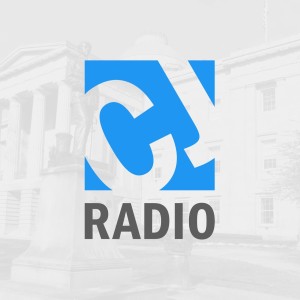
Carolina Journal Radio No. 802: Rainy-day fund will help N.C. recover from Florence
 2018-10-01
2018-10-01
Download
Right click and do "save link as"
As North Carolina recovers from Hurricane Florence, state government leaders are happy to have access to a $2 billion “rainy-day fund.” The Republican-led General Assembly made a concerted effort to rebuild that fund in recent years. Joseph Coletti, John Locke Foundation senior fellow, explains why. Coletti also explains how the fund could help state government move more quickly to address issues arising from Florence’s damage. Amid recent controversies involving Facebook, some critics have called for increased regulation of the social media giant. Computer expert Bob Chandler, president of Macvantage, discusses Facebook’s recent woes. Chandler examines pros and cons related to government involvement in Facebook’s operations. The U.S. Supreme Court nomination of Judge Brett Kavanaugh has taken recent twists and turns. North Carolina Sen. Thom Tillis recently chided Democratic colleagues and left-of-center partisan activists for refusing to engage Kavanaugh on substantive legal issues. President Trump recently traveled to Charlotte to unveil a new program designed to help more small business employees save money for retirement. U.S. Labor Secretary Alexander Acosta, Linda McMahon of the Small Business Administration, and other national and local business leaders joined the president to tout the new program. The arrival of Hurricane Florence prompted N.C. officials to trigger the state’s price-gouging law. It allows people to complain to government when they believe vendors are charging prices that are too high. Roy Cordato, John Locke Foundation senior economist, says the law creates serious negative unintended consequences. Among them: empty store shelves and dried-up gas pumps. Cordato explains why higher prices make sense during an emergency.
view more
More Episodes
012345678910111213141516171819
Create your
podcast in
minutes
- Full-featured podcast site
- Unlimited storage and bandwidth
- Comprehensive podcast stats
- Distribute to Apple Podcasts, Spotify, and more
- Make money with your podcast
It is Free
- Privacy Policy
- Cookie Policy
- Terms of Use
- Consent Preferences
- Copyright © 2015-2024 Podbean.com





